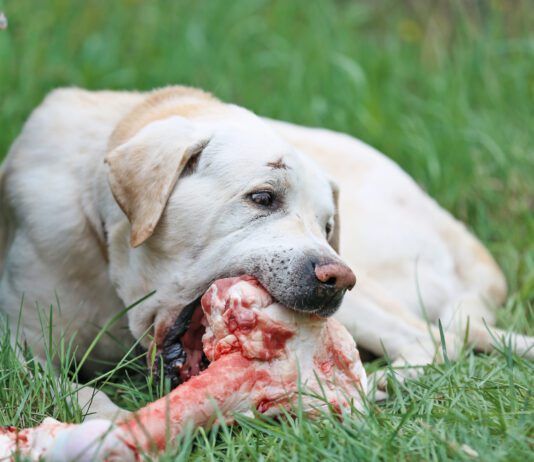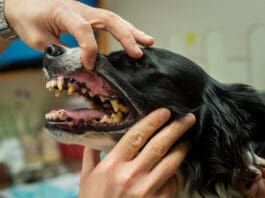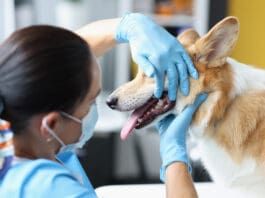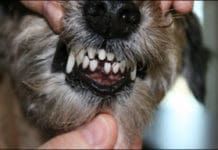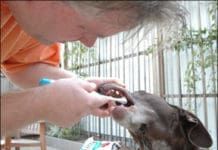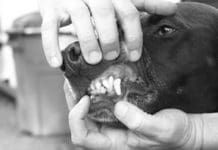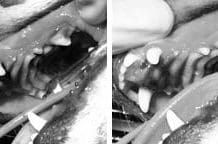Fractured Teeth in Dogs
Between runs at a recent agility competition, I was chatting with Katie and Nora, a couple of handlers I often see at trials. Coincidentally, all three of our dogs had received an annual health examination from our respective general practice veterinarians recently, with all dogs earning good reports. And all three of us had been told by our veterinarians that our dogs had broken or chipped teeth. My veterinarian had noted a slab fracture of the upper fourth premolar" on the health summary report for my 10-year-old Border Terrier
Canine Dental Care
Some dogs have sparkling white teeth (or at least, whitish teeth that are free of tartar) throughout their lifetimes, with absolutely no thought or effort required of their owners. Those are the lucky ones – the owners, I mean – because more than 80 percent of dogs develop a form of canine gum disease by the age of just three years, according to the American Veterinary Dental Society. The owners of those dogs – that is, most of us – should be brushing our dogs’ teeth regularly to prevent the accumulation of plaque and tartar that precipitates gum disease. Proponents of raw dog food diets believe that the mechanical action of chewing raw meat and bones and the superior nutrition provided by the diets help maintain healthy teeth. That may be true, but for dogs on more conventional diets, regular brushing is the most effective method of keeping a dog’s teeth free of tartar and plaque.
Your Dog’s Mouth
The mouth is the site of the two most common canine diseases.
Anesthesia-Free Teeth Cleaning For Your Dog
Most of us have seen signs or advertisements for anesthesia-free teeth cleaning" for dogs and cats. To most people
Your Dog’s Bad Breath Can Signal Oral Health Problems
Chronic bad breath is not a normal, healthy condition. Even though it is true that dogs will sometimes eat UFOs (Unidentifiable Fetid Objects), unpleasant things collected from unspeakable sources that can make their mouths smell unbearable for short periods of time, their breath should never remain foul. And while hal-itosis (bad breath) is sometimes caused by indigestion or other imbalances deeper in the digestive tract, it is more commonly attributable to plaque; a buildup of anaerobic bacteria on the teeth and gum tissues.
Clean Teeth, Healthy Dogs
You might be one of the lucky ones; your dog might maintain gorgeous white teeth without any effort on your part whatsoever. Just wait, though. Sooner or later, all dogs can benefit from having their teeth brushed. Plaque and tartar accumulate on canine teeth just like ours. Plaque is made of proteins from saliva, which interact with bacteria. If left to accumulate on teeth, bacteria quickly multiply and can invade the gums around the teeth, causing inflammation known as gingivitis. If plaque is not removed, inflammation of the gums can spread to the bone around the teeth, leading in turn to bone loss or periodontal disease.
Oral Diseases in Dogs
At some time or another, every dog lover has endured a blast of bad breath from an ardent canine companion. Foul-smelling breath is so prevalent among pooches that the very phrase has come to be an insult, as in, Get lost


